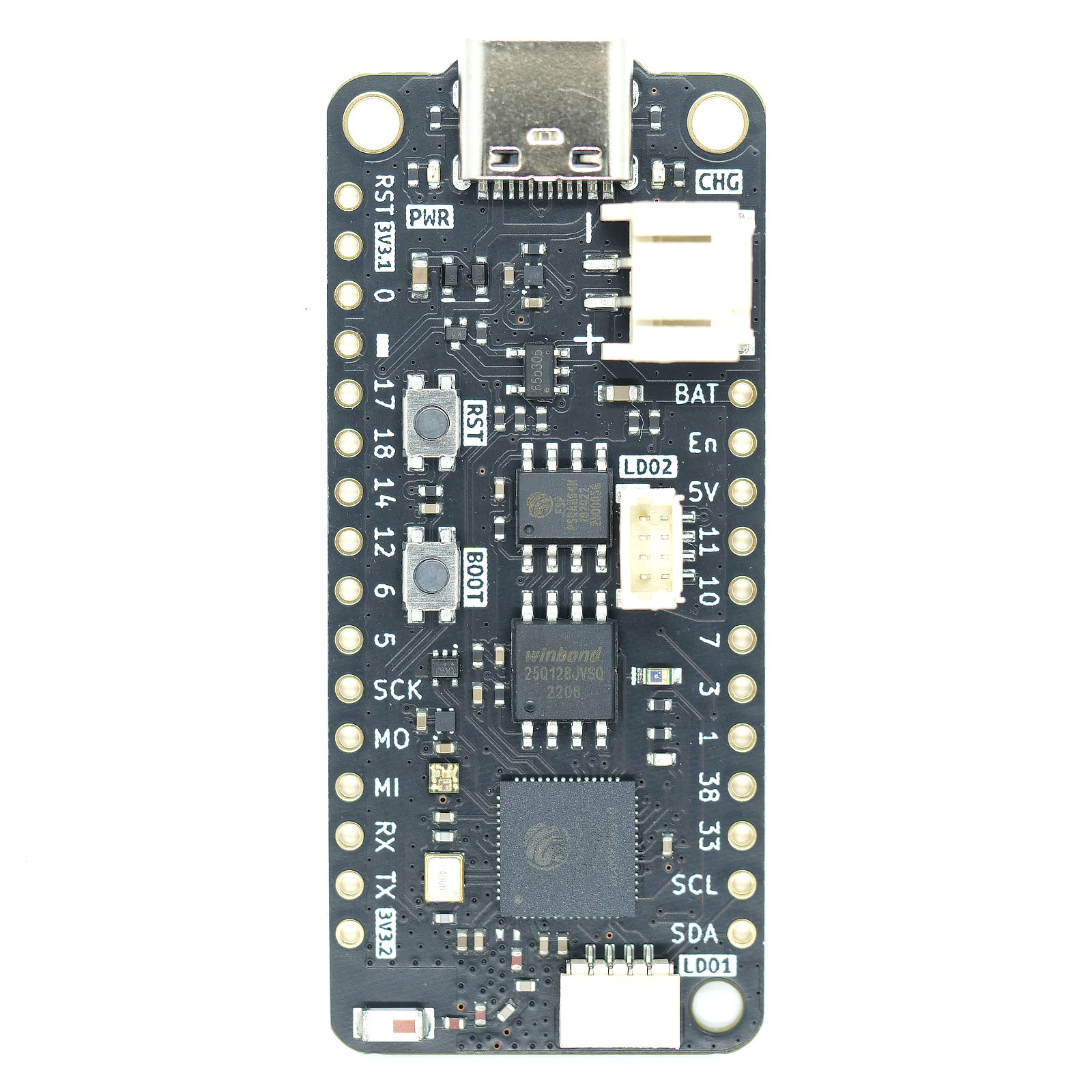MicroPython - Python for microcontrollers (original) (raw)
FeatherS3

Vendor: Unexpected Maker
Features: BLE, Battery Charging, External Flash, External RAM, Feather, JST-SH, RGB LED, USB-C, WiFi
The following files are firmware for the FeatherS3.
Installation instructions
To flash or erase your FeatherS3, you have to first put it into download mode.
To put the FeatherS3 into download, follow these steps:
- Press and hold the [BOOT] button
- Press and release the [RESET] button
- Release the [BOOT] button
Now the board is in download mode and the native USB will have enumerated as a serial device.
Program your board using the esptool.py program, found here.
Windows users: You may find the installed program is called esptool instead of esptool.py.
Erasing
If you are putting MicroPython on your board for the first time then you should first erase the entire flash using:
esptool.py erase_flash
esptool.py will try to detect the serial port with the ESP32 automatically, but if this fails or there might be more than one Espressif-based device attached to your computer then pass the --port option with the name of the target serial port. For example:
esptool.py --port PORTNAME erase_flash
- On Linux, the port name is usually similar to
/dev/ttyACM0. - On Mac, the port name is usually similar to
/dev/cu.usbmodem01. - On Windows, the port name is usually similar to
COM4.
Flashing
Then deploy the firmware to the board, starting at address 0:
esptool.py write_flash 0 ESP32_BOARD_NAME-DATE-VERSION.bin
Replace ESP32_BOARD_NAME-DATE-VERSION.bin with the .bin file downloaded from this page.
As above, if esptool.py can't automatically detect the serial port then you can pass it explicitly on the command line instead. For example:
esptool.py --port PORTNAME write_flash 0 ESP32_BOARD_NAME-DATE-VERSION.bin
Troubleshooting
If these steps don't work, consult the MicroPython ESP32 Troubleshooting stepsand the esptool documentation.
Important: From the options below, download the .bin file for your board.
Firmware
Releases
Preview builds
(These are automatic builds of the development branch for the next release)